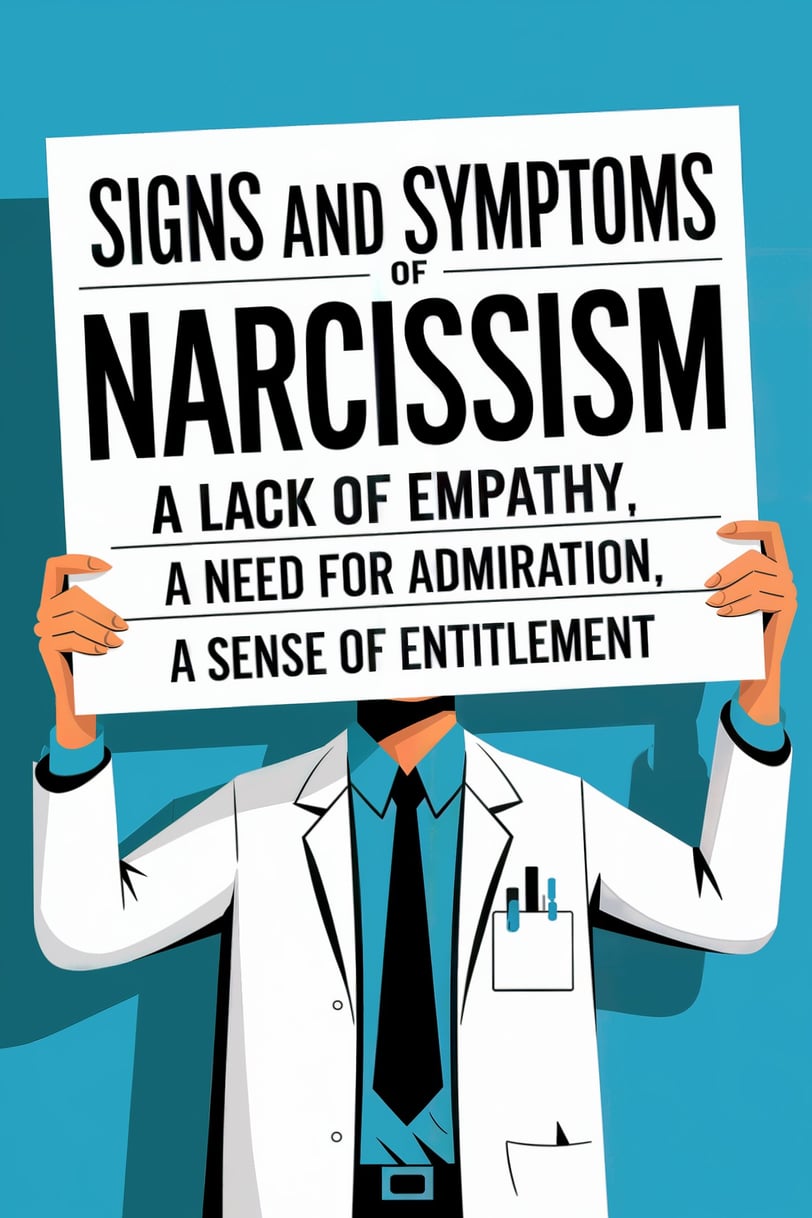Signs and Symptoms of Narcissism
Recognizing the signs and symptoms of narcissism is vital for understanding how it impacts individuals and their interactions with others. These traits can range from subtle to overt and may manifest differently depending on the person and situation. While not every display of narcissistic behavior equates to a clinical diagnosis of Narcissistic Personality Disorder (NPD), knowing the common signs can help in identifying problematic patterns and fostering better responses.
Common Signs and Symptoms
Grandiosity
A pronounced sense of superiority, often paired with fantasies of power, success, or exceptional talent. Individuals may expect to be recognized as superior even without achievements that justify it.
Example: Frequently boasting about unverified accomplishments or talents and expecting admiration.
Excessive Need for Admiration
A persistent craving for attention and validation from others. When admiration is not forthcoming, the individual may feel slighted or become irritable.
Example: Regularly fishing for compliments or reacting poorly to perceived neglect.
Lack of Empathy
Difficulty understanding or caring about the emotional experiences of others. This often leads to strained relationships and conflicts due to an inability to validate others’ feelings.
Example: Dismissing a friend’s concerns as unimportant or minimizing others’ emotions during serious discussions.
Sense of Entitlement
An expectation of special treatment and automatic compliance with their expectations. When these expectations are unmet, frustration and resentment can follow.
Example: Becoming impatient or angry when others do not prioritize their needs or wishes.
Manipulative or Exploitative Behavior
Using others to achieve personal goals, often without considering the impact on those involved.
Example: Taking credit for another’s work or leveraging relationships to gain advantages while offering little in return.
Arrogance and Dismissiveness
Exhibiting condescending attitudes and belittling others to assert superiority. This behavior often serves as a defense mechanism for their fragile self-esteem.
Example: Making sarcastic or dismissive remarks about others’ efforts or ideas.
Subtle Indicators
While some signs of narcissism can be overt, others may be more subtle and harder to identify. Here are some understated behaviors that can point to narcissistic tendencies:
Inability to Handle Criticism: Reacting defensively or angrily to feedback, no matter how constructive.
Envy of Others: Displaying jealousy of others’ successes and downplaying their achievements.
Persistent Self-Focus: Steering conversations back to themselves and showing little interest in others’ stories or viewpoints.
Recognizing Patterns
It’s important to observe these signs over time and across different situations. Occasional displays of these traits do not necessarily indicate narcissism; the key is the persistence and impact of these behaviors on personal and social functioning.
Signs that may indicate a deeper issue:
Regular conflicts with friends, family, or colleagues.
A pattern of relationships characterized by discord and disconnection.
Difficulty maintaining long-term connections due to exploitative or dismissive behaviors.
Why Recognizing Symptoms Matters
Understanding these signs can aid in identifying potential challenges in relationships or work environments. Early recognition allows for informed responses, the setting of healthy boundaries, and the pursuit of professional guidance when necessary. Whether navigating your own behavior or interacting with others, awareness is a powerful tool for fostering healthy interactions and personal growth.
Reminder: If you recognize consistent patterns of these symptoms in yourself or others, consulting with a mental health professional can provide clarity and guidance on managing or mitigating these traits effectively.Visit Our Free Resources Page


